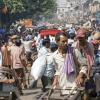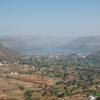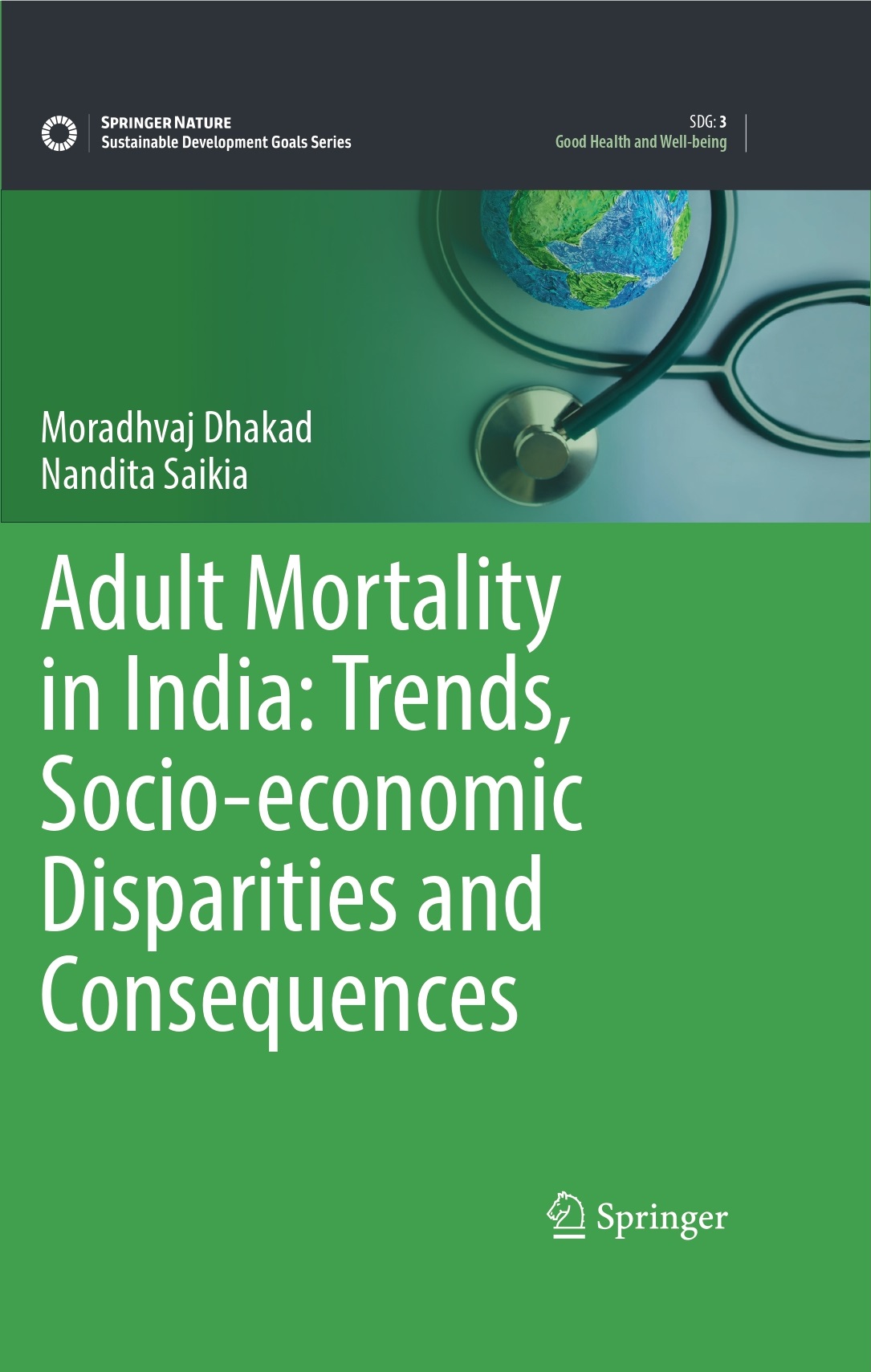
A new book titled, Adult Mortality in India: Trends, Socioeconomic Disparities, and Consequences, provides an in-depth analysis of adult mortality patterns in the country and addresses crucial issues related to public health and policy.
Authored by Moradhvaj Dhakad, a researcher in the IIASA Population and Just Societies Program, and IIASA alumna Nandita Saikia (currently a professor in Public Health and Mortality Studies at the International Institute for Population Sciences in Mumbai, India), this comprehensive study examines the trends, socioeconomic disparities, and consequences of adult mortality in India from 1980 to 2021.
India contributes the largest number of premature deaths to the global statistics. The new book highlights the importance of addressing adult mortality, since a substantial reduction in under-five mortality has shifted the burden of deaths to the adult age group with severe socioeconomic consequences. It emphasizes the urgent need for a thorough understanding of the variations in mortality within India, which has one of the highest intra-country variations by region and socioeconomic categories.
The authors address various research questions, utilizing multiple data sources such as the Indian Sample Registration System, National Family Health Surveys, and India Human Development Surveys. They explore the adult mortality situation in the country through the lenses of gender, caste, religion, rural-urban divides, economic status, and region of residence to provide a comprehensive picture of adult health situations and their consequences at the household level.
"Examining adult mortality status is crucial because India exhibits extreme demographic heterogeneity in health outcomes, including adult mortality. There has been limited research on a socioeconomic gradient or geographical inequality in adult mortality. Empirical evidence about socioeconomic differentials in adult mortality may help identify high-risk groups and introduce focused interventions to minimize adult deaths," explains Saikia.
The book consists of eight chapters, covering topics ranging from general patterns of adult mortality to its consequences in India. One of the key findings of the study is the disproportionately high male adult mortality in India, which has been improving at a significantly slower pace compared to that of females. The study reveals the socioeconomic and healthcare inequalities across states, with socially disadvantaged caste groups and economically poor households generally experiencing higher mortality rates. The authors also point out that the causes of death are changing, with external causes of death on the rise among young adults and cardiovascular diseases on the rise among older adults.
Moreover, the book examines the impact of adult deaths on household consumption patterns and economic conditions, highlighting the vicious cycle of poverty and adult mortality.
The research findings presented in the new publication provide valuable policy insights and a reference point for tracking progress towards the UN Sustainable Development Goals (SDGs). The authors further emphasize the crucial role of addressing adult mortality in achieving the SDG targets, particularly in reducing socioeconomic disparities and improving the health and wellbeing of the most vulnerable populations.
“We foresee that our new book will serve as a resource for policymakers, public health researchers, demographers, epidemiologists, sociologists, and economists. It is a must-read for anyone interested in understanding the adult mortality situation in India and its socioeconomic implications,” Moradhvaj concludes.
For more information or to purchase the book, please visit https://link.springer.com/book/10.1007/978-981-99-0002-2.
Reference
Dhakad, M. & Saikia, N. (2023). Adult Mortality in India: Trends, Socioeconomic Disparities and Consequences. Springer Singapore DOI: https://link.springer.com/book/10.1007/978-981-99-0002-2
News

05 November 2024
How ecosystem restoration benefits national policies

12 August 2024
RESIST updates

27 February 2024


